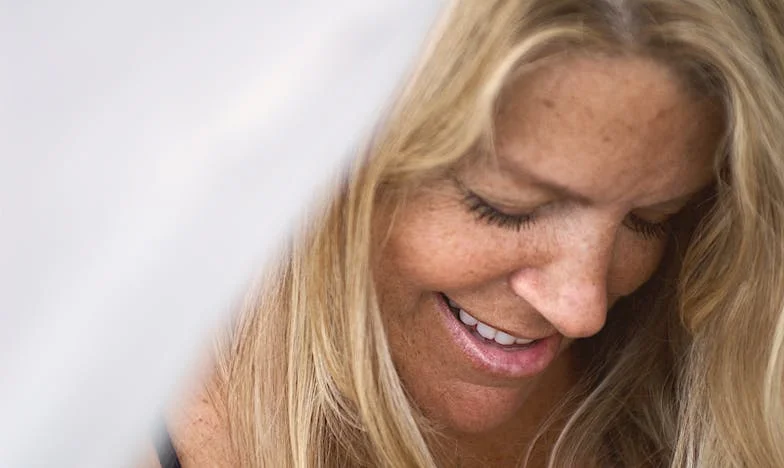First-Class Luggage, Second-Class Heart
“Can’t you keep that baby quiet?” I snapped, my voice sharp like the click of my polished shoes on the airport’s marble floor. The toddler wailed louder, his little fists pounding the armrest, while his mother—worn, hair frizzed, eyes brimming—tried to shush him with a desperate lullaby. People stared, and I felt their gazes on my first-class suit, my expensive leather carry-on, my air of just having made it. My promotion to assistant director at McMillan Properties was still so fresh it tinged my words with a new cruelty. I was finally someone, and I wanted the world to know it.
The gate attendant called for first-class boarding. I swept past the mother, pointedly pausing to let her see the gold trim on my ticket. She looked away, cheeks red. I caught a glimpse of the child’s tear-streaked face, and for a second—just a second—I remembered my own mom, holding my hand at the bus stop, trying to shield me from a world that never seemed to have time for poor families like ours.
But I shook it off. That wasn’t me anymore.
As the plane climbed into the sky, I settled into my seat, stretching out, letting the gentle clink of ice cubes in my whiskey reassure me. I caught sight of the mother again, stuck near the back, juggling a diaper bag, her son now quiet and sucking his thumb. Something twisted in my gut, but I ignored it, diving into the pitch I’d prepared for tomorrow’s meeting.
The turbulence was nothing compared to what waited when I landed in Chicago. My boss, Mr. Benton, called as soon as I turned on my phone. “Brian, I want you to meet me at the hotel bar. Now.”
He was already there, frowning into his scotch. “Did you have a good flight?” he asked, but his voice was cold. I straightened my lapel. “Yes, sir. Productive. Ready for tomorrow.”
He slid his phone across the table. The screen glowed with a Facebook post: a blurry photo of me at the gate, sneering at the mother. The caption read, “First-class ticket, zero class heart.” The comments were brutal. Some recognized me from the company website. Others had already tagged McMillan Properties, vowing never to do business with us.
“Brian,” Mr. Benton said, his voice taut, “We work in neighborhoods. We build homes for families. That woman—she’s the face of our customer base. And you humiliated her in public.”
I stumbled over my words. “It was a misunderstanding. She—”
“Save it. You know how fast things go viral. Corporate’s already called. They want you off the project.”
My mind reeled. One moment—one stupid, arrogant moment—and my future was dissolving in front of me. I tried to protest, but he only shook his head. “You need to fix this. Not just for the company. For you.”
I spent the night in my hotel, my suit jacket slung over a chair, the city lights mocking me through the window. I scrolled through the comments under the photo—strangers dissecting my character, calling me every name in the book. Among them, a comment from the mother herself: “We all have bad days. But some of us don’t have the privilege to hide behind a ticket or a tailored suit.”
I couldn’t sleep. I kept replaying the moment—her face, her son’s cries, my impatience. I thought about my own beginnings, the times my mom was judged, how I’d promised myself never to be like the people who looked down on us. Somewhere along the way, I’d become them.
In the morning, I went to the address listed in the comment—the local shelter where the mother volunteered. When I walked in, the receptionist eyed me warily. “Looking for someone?”
I nodded, tongue thick. “Julia. Julia Sanders. I—my name’s Brian Carter.”
Julia appeared in the hallway, her son clinging to her hip. She recognized me instantly. For a moment, I thought she might turn away. Instead, she took a breath. “What do you want?”
“To apologize,” I said. “I was out of line. I—I thought my ticket made me better than you. I was wrong.”
She studied me. “People like you don’t usually come back.”
“I know. But I want to do better. I want to help.” My voice cracked, and suddenly, I wasn’t the assistant director anymore. I was just Brian, the kid whose mom had to take three buses to work, who knew what it was like to feel small.
She let me sit with her, and as her son played on the floor with battered trucks, she told me about her life—her husband’s accident, the job she lost, the nights she spent awake listening to her son breathe. I listened. I helped serve dinner. I cleaned up spilled juice. For the first time in years, I felt useful in a way that had nothing to do with money or status.
Weeks passed. The internet moved on. My company didn’t. They let me go, but I started volunteering at the shelter. Julia and I became friends. I learned what humility felt like—and how quickly a single moment can change everything.
I still think about that day at the airport. How many times have I walked past someone struggling and judged them? How many times have I mistaken success for compassion?
If you were in my shoes, would you have acted differently? Or do we all have a little bit of first-class arrogance hiding in us, just waiting for the wrong moment?
